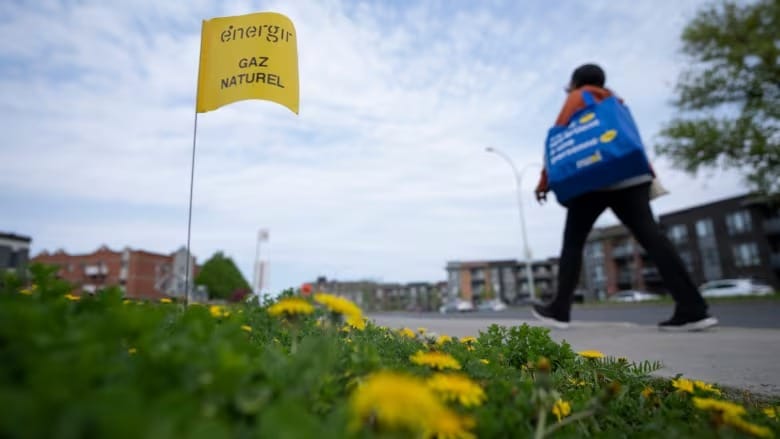Quebec to ban fossil fuel natural gas heating in homes by 2040
Environmental groups says change will help reduce greenhouse gas emissions

Environmental organizations are applauding Quebec’s decision to ban fossil-fuel-based natural gas heating in homes by 2040 as part of its effort to reduce greenhouse gas emissions significantly.
“The idea is to stop the hemorrhage,” said Jean-Pierre Finet, an analyst with Le Regroupement des organismes environnementaux en énergie (ROEE), which advocates for sustainable energy and a shift away from fossil fuels in Quebec. “We need to reduce our greenhouse gas production, and adding gas to the grid won’t achieve that.”
Currently, tens of thousands of homes in Quebec rely on natural gas heating. Under the new plan, all such systems must transition to renewable gas—produced from organic waste—by 2040. However, this transition presents challenges, as only 2% of the natural gas currently supplied by Quebec’s primary distributor, Énergir, is renewable.
Renewable natural gas challenges
Finet highlighted the cost disparity, noting that fossil fuel gas costs about 10 cents per cubic meter, while renewable natural gas can range from 70 to 90 cents per cubic meter. Despite the hurdles, Énergir, which supplies about 97% of Quebec’s natural gas to over 200,000 customers, supports the government’s targets. The company explains that renewable natural gas can be generated at specialized facilities that process waste such as manure, human biosolids, and food residues. New biomethanation centers in Montreal and Quebec City are already converting compost and wastewater into natural gas.
The new regulations apply to residential, commercial, and institutional buildings, exempting industrial facilities, which account for 60% of Énergir’s natural gas consumption. To ease the transition, the government is encouraging fossil fuel users to consider switching to electric heating, though this brings its own challenges.
Electricity grid concerns
Critics, including Renaud Brossard from the Institut économique de Montréal, argue that the push toward electric heating is flawed, citing Quebec’s acknowledged electricity shortage. However, both Hydro-Québec and the provincial government have expressed confidence that the grid can handle the increased demand, provided Quebecers adopt energy conservation practices.
Organizations like Sortons le gaz! have welcomed the ban, emphasizing that setting a clear deadline for phasing out fossil fuels sends a strong signal to markets, citizens, and the global community. However, they caution against relying on dual-energy systems, which combine fossil fuels and electricity, or on renewable natural gas, warning that such measures could delay the full transition to sustainable energy.
Impact and future goals
The ban addresses about 7% of Quebec’s greenhouse gas emissions. Anne-Céline Guyon, an analyst at Nature Québec, called the move excellent news but criticized the government for considering dual-energy systems and renewable natural gas as long-term solutions. “These approaches will never sustainably meet the necessary volumes,” she said.
The government’s plan, announced in collaboration with energy distributors, takes inspiration from municipal regulations for new residential buildings. It aligns with Quebec’s 2030 green economy strategy, supported by nearly $900 million in investments for energy efficiency. Environment Minister Benoit Charette assured that measures will be in place to ensure a smooth transition to renewable energy while giving consumers time to adapt.





